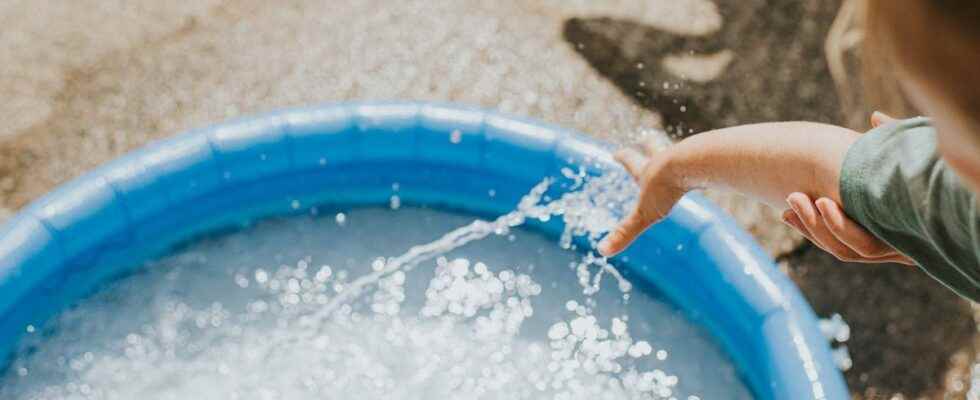Published on
Updated
Reading 2 mins.
in collaboration with
Dr Gérald Kierzek (Medical Director of Doctissimo)
Medical validation:
August 03, 2022
Yesterday, in the swimming pool, your skin reddened and tingled? Please note that you may be suffering from “aquagenic urticaria”, a rare form of water allergy. Explanations.
Water allergy is a form of urticaria that is triggered by contact with water, hot or cold, regardless of its salinity (shower, lake, swimming pool, seawater, etc.). The disease needs to be detected, because the consequences can be serious.
Aquagenic urticaria, what is it?
Aquagenic urticaria is a disease that is little known because it is extremely rare. However, it has a lasting effect on the daily lives of patients (often young women) whose skin cannot tolerate simple contact with water (swimming, showering, rain, etc.). It can also happen that patients are intolerant to their own fluids (urine, perspiration, tears) which further complicates daily life.
The disease is characterized by violent itching, red patches on the body, pimples and burns, which are difficult to bear. The first symptoms appear within 15 minutes of contact with water and last for two or three hours.
Sometimes, tingling appears… but no trace of skin lesion is visible to the naked eye. This is called aquagenic pruritus, a reaction to water – which is to be distinguished from a true allergy.
Only a few minutes after skin contact with water, a burning sensation appears. It can last up to several hours.
Usually, this reaction does not cause particular pain, except in the case of aquadynia, a rare complication of aquagenic pruritus.
These two allergic forms are dangerous because they can cause serious skin disorders (redness, hives, pruritus, etc.) but also loss of consciousness, which can lead to drowning.
“ However, be careful not to confuse allergy to the sun and allergy to water. The polluted sea or the chlorinated swimming pool can also lead to simple irritations. Therefore, all possible causes of irritation should be ruled out before making a diagnosis of water allergy. “says Dr. Kierzek.
Consult an allergist online
Water allergy: what solutions?
Few treatments exist. Generally, antihistamines are prescribed: their anti-inflammatory action can have a positive effect on the skin. But they don’t address the cause of the inflammation.
Hypnosis can sometimes help patients with aquagenic urticaria, provided that the cause is of psychological origin. Nevertheless, it is often necessary to try several drugs before finding the “right one”.
Good to know: hot showers and the sauna / hammam should be avoided, as they can aggravate the itching.
